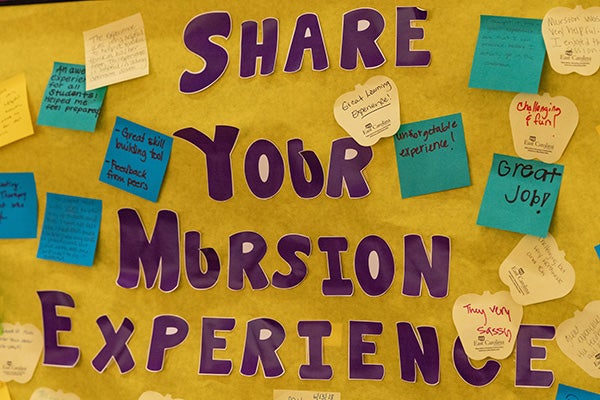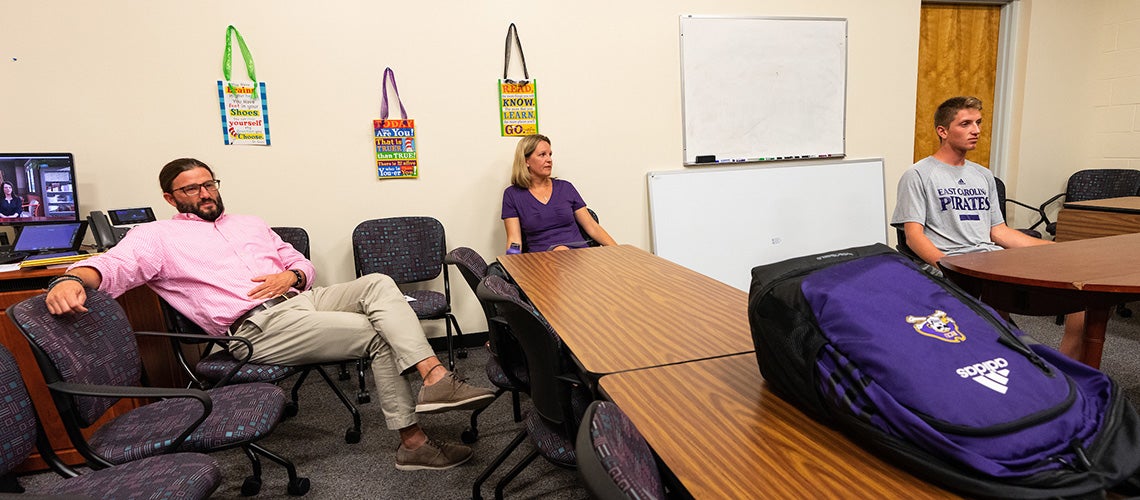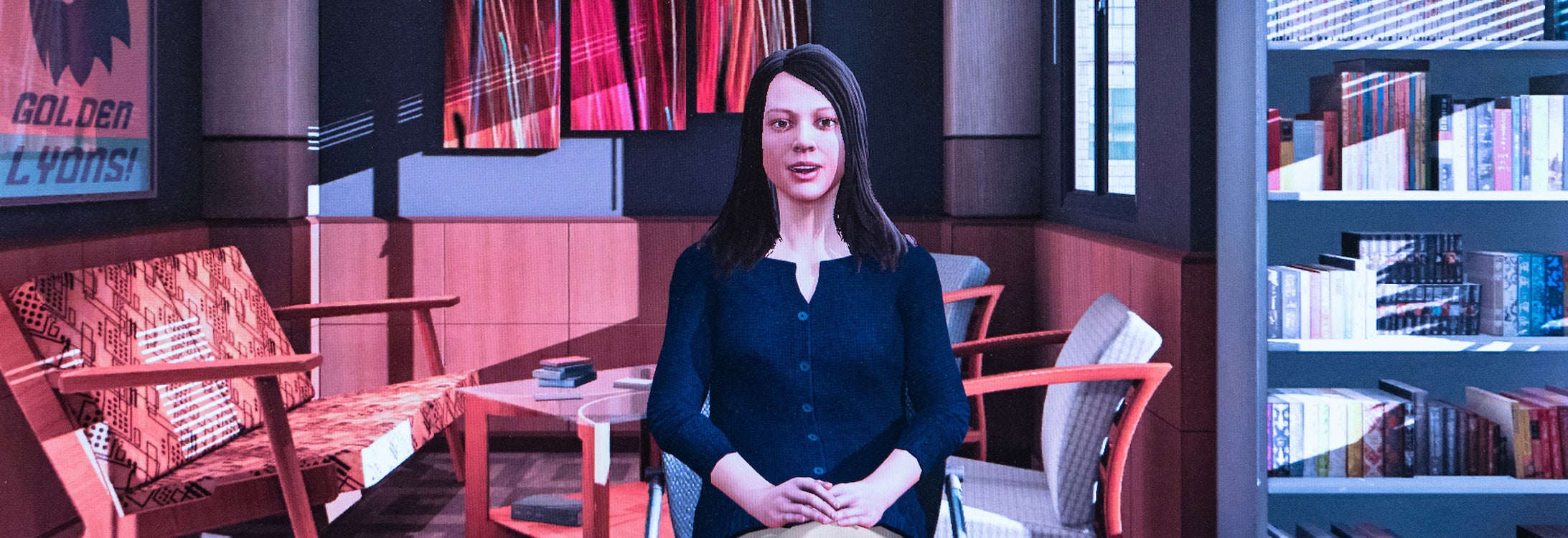LIFE SKILLS
Virtual training helps student-athletes communicate
Today’s student-athletes are more technologically connected than ever before, yet research shows many struggle to initiate difficult conversations.
East Carolina University faculty members are joining with American Athletic Conference colleagues to help students improve communication skills through Mursion, a virtual training tool at ECU.
“It’s (communication) almost a taken-for-granted skill. If they (student-athletes) have an issue, will they bring it to someone and communicate it?” said Stacy Warner, associate professor of kinesiology and co-primary investigator for a research project titled “Tackling Difficult Conversations: Improving the AAC Experience with Critical Dialog.”
Co-primary investigator Todd Fraley, Christine Wilson, director of the Mursion lab in the College of Education, and Mike Catalano in the School of Communication are on the research team with Gareth Jones from Temple University.
Warner and Fraley, associate dean and director of the EC Scholars program, are recruiting 100 ECU student-athletes from all sports for the study.

Messages written by participants fill a bulletin board in the Mursion lab in the College of Education.
“The athletic department has been very supportive,” said Warner, who has worked with Danielle Morrin, director of life skills and community services liaison in ECU Athletics, and Cal Christian, faculty athletics representative, to help relay the opportunity to student-athletes.
Recently, ECU tennis player Diogo Marques participated in several simulated scenarios in the Mursion lab.
In one, he talked about life after sports. An avatar playing the role of job recruiter asked Marques if he had attended any career fairs and what his interests were away from the court.
“I think I’d like to work in business and the sports field,” Marques said. When the job coach asked how Marques could integrate his athletic training in a career, he said playing sports “forces you to have a schedule and follow the schedule and be organized. I think that’s really important in business.”
In another exercise, Marques met with his avatar tennis coach who was eager for him to return after a recent injury.
While Marques had been medically cleared to play, he wasn’t ready because he still felt pain with some movements. While the coach appeared understanding at first, he eventually mentioned possibly having to cut him from the roster. Following more discussion, Marques agreed to attend three light practices before they talked again about his condition.
Marques, a freshman from Portugal, heard about the study from teammate Austin Allen, an ECU Student Athlete Committee representative.
Allen said his Mursion training, which included talking with a professor who was irritated by his team travel schedule, was a valuable experience.
“I haven’t encountered a faculty member who was that aggressive before, but I think preparing for the worst is good,” said Allen, an Honors College senior from Asheboro. “The technology is so lifelike. It feels like you’re talking to a real person.”
Allen is applying to medical school, and one scenario included a mock interview. “It was very good practice for me,” he said.
Funded by a $10,000 AAC research grant, student-athletes will practice their communication skills by choosing three out of five hypothetical scenarios from academic or financial issues to playing time. Students will spend five to 10 minutes discussing the issue with an avatar who will play the role of a professor, job recruiter, coach or administrator. A brief survey will be given before and after the experience.
Researchers want to see if Mursion@ECU will improve a student-athlete’s willingness to communicate, self-efficacy, and increase confidence related to their interpersonal communication skills.
“Ultimately, we believe that the Mursion@ECU technology can play an important role in improving the student-athlete experience through enhancing athletes’ communication with professors, coaches, administrators and others,” researchers wrote in the grant summary.
Results from the study will be presented at the third annual American Research Symposium this spring. A final summary with best practices for athletic departments will be distributed to AAC member institutions and posted to the conference website in late August 2019.
Student-athletes interested in participating in the study should contact Catalano at catalanom15@ecu.edu or Warner at warners@ecu.edu.

From left, ECU faculty members Todd Fraley and Stacy Warner watch a simulated scenario between ECU student-athlete Diogo Marques and his tennis coach avatar as they discuss returning from an injury.
